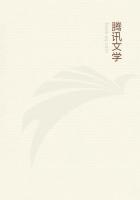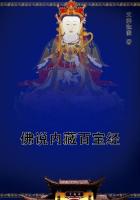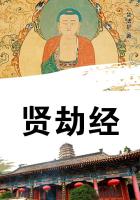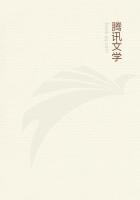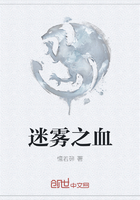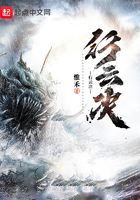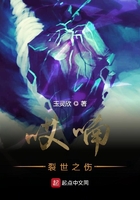But,in the next place,we now reach a more serious difficulty.The non-ego,we see,corresponds simply to the qualities fully assignable in terms of space.But Hamilton has read Kant,and moreover been convinced by him.Kant has proved beyond 'the possibility of doubt,'(42)the truth that space is a 'fundamental condition'of thought,and therefore belongs to the ego.This at once throws us back into idealism.The whole rose has become a thought,not a thing.So long as he roundly asserts that mind perceives matter,that matter means solid space,and that this truth is implied by the very ******st act of intelligence,we may wonder at his audacity,but we may admit his consistency.But to combine this with the most positive assertions of the 'relativity'of knowledge,that is,of our inability to know either mind or matter,and then to accept as conclusive Kant's theory that space is a mental form,is to land us in a hopelessly inconsistent position.What Kant precisely meant,or whether he had not various and inconsistent meanings,is happily a question beyond my purpose.Hamilton's view of Kant is clear.'The distinctive peculiarity'of Kant's doctrine,he says,is 'its special demonstration of the absolute subjectivity of space,and in general of primary attributes of matter.'(43)He argues that if Reid virtually held the same view,he abandoned the principle of Natural Realism.(44)If,then,Kant's theory was conclusively proved,was not Hamilton bound to give up his essential principle?He tells us that the primary qualities are 'unambiguously objective (object-objects),'whereas the secondary are 'unambiguously subjective (subject-objects).'(45)Yet,he admits that Kant proves the primary to be absolutely subjective,'I have frequently asserted,'he says again,that in 'perception we are conscious of the external object immediately and in itself.This is the doctrine of Natural Realism.'But he explains that by speaking of a thing 'known in itself'he does not mean known 'out of relation to us,'but known 'as the necessary correlative of an internal quality of which I am conscious.'(46)That is,apparently,knowing a thing 'in itself'is knowing it 'not in itself,'but only in its effect;which again is to abandon 'Natural Realism.'Hamilton finds a way out of these apparent contradictions which satisfies himself.Both theories,he suggests,may be true.We have clearly an a priori knowledge of space 'considered as a form or fundamental law of thought,'but also an empirical knowledge of what,in this relation,may be called 'extension.'(47)He agrees,he says,with Kant that an 'a priori imagination'of space is a 'necessary condition of the possibility of thought';but differs from Kant by holding that we have an 'a posteriori percept'of space 'as contingently apprehended in this or that actual complexus of associations.'(48)It is most natural to interpret this as a virtual acceptance of Kant's doctrine.It falls in with what he says elsewhere:'the notion of space is a priori,the notion of what space contains,adventitious or a posteriori.Of this latter class is that of Body or Matter.'(49)If I merely fill up space by the sense of resistance,as he thinks,that is a subordinate operation,in no way affecting the subjective character of space generally.If,on the other hand,I can acquire an empirical notion of space independently,it seems impossible to see why Ishould admit the a priori notion.Hamilton starts from the assertion that we actually perceive facts,and comes to admit that we simply organise sensations.(50)Finally,Hamilton turns to yet another theory.His essential point is the necessity of believing consciousness.When we inquire what is the sphere within which consciousness is infallible,we have to accept something very like the condemned 'crotchet'of the Cosmothetic Idealists.The infallibility of consciousness has,after all,to be limited.The summary assertion that the mind can leap the gulf which separates it from matter insists upon some explanation.Consciousness is infallible when it is its own object.But it is plain,as Hamilton agrees,that this primary,direct,or presentative knowledge is only,as it were,the limiting case of knowledge.Accordingly he condemns Reid for speaking of memory as an 'immediate knowledge of the past.'(51)The 'object'in this case is not the past event,but some picture of the past event;not (in his illustration)George IV landing at Leith,but a mental image of the landing,'including a conviction'that it somehow represents a past reality.It is natural,then,to inquire whether my belief in an external world may not be a consciousness of a modification of myself,including a conviction that it merely 'represents'an external world,(52)and is not in direct contact with the 'non-ego.'Immediate knowledge of the past is 'a contradiction in terms.'And this,he adds,applies equally to an 'immediate knowledge of the distant.'(53)It is false to say with Reid that ten men all see the same sun.Each sees a different object,because each sees a different at of rays from which he infers the object.(54)We perceive only modifications of light,or,as he has said before,the 'rays of light in relation to and in contact with the retina.'(55)There is,as he adds,no greater marvel in our perception of the external world than in the admitted fact that mind is connected with body.Therefore,in his final statement,(56)it is laid down as an essential principle that consciousness is a 'knowledge solely of what is now and here present to the mind.'What is meant by the 'here'?'It is the condition of intuitive perception,'he says,that a sensation is actually felt 'there where it is felt to be.'To suppose that a pain in the toe is felt really in 'the brain is conformable only to a theory of representationism.'(57)If the mind is not itself extended or in any way a subject of space-relations,does this not imply that the whole external world is somehow outside the sphere of immediate knowledge --a construction,not a mode of consciousness?To this Hamilton replies that the 'nervous organism.in contrast to all exterior to itself,appertains to the concrete human ego,and is in this respect subjective,internal;whereas in contrast to the abstract,immaterial ego,the pure mind,it belongs to the non-ego,and in this respect is objective,external.'(58)This view leads him into pure physiology.He asks whether the mind is conscious of sensations at the periphery of the nerves,or at a 'central extremity in an extended sensorium commune.'He declares,lest such language may appear suspicious,that the question of materialism is not raised by this assumption.(59)Anyhow,since the body is now in some sense part of the concrete human ego,our consciousness of the primary qualities is in this sense part of our consciousness of ourselves.They are given as existing in our own organism,or,in other words,as we occupy space,we have an 'immediate'knowledge of space.(60)I only note the peculiar interpretation now put upon the deliverance of consciousness.I fancy myself to perceive the sun;what I really 'perceive'is the action of rays of light on my retina.Yet it is obvious that I only learn of the existence of 'rays'or 'retina'long after the perception.
同类推荐
热门推荐

